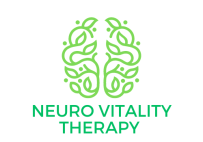Title: Empowering Recovery: How Occupational Therapy Supports Vocational Rehabilitation After Stroke or Brain Injury
Recovering from a stroke or brain injury can be a long and challenging journey. For many individuals, returning to work represents a significant milestone in their recovery, offering a sense of purpose, independence, and normalcy. However, this transition is often complex, involving not just physical healing but also cognitive, emotional, and social adjustments. This is where occupational therapy (OT) plays a pivotal role, particularly through vocational rehabilitation.
In this blog post, we’ll explore how occupational therapists help stroke and brain injury survivors regain their confidence and skills to return to the workforce, empowering them to rebuild fulfilling lives.
What is Vocational Rehabilitation?
Vocational rehabilitation is a process that helps individuals with disabilities or health conditions prepare for, find, and maintain employment. After a stroke or brain injury, survivors may face new challenges that affect their ability to work, such as difficulty with memory, mobility, communication, or managing stress. Vocational rehab aims to address these challenges through a tailored approach that considers the individual’s unique needs, strengths, and goals.
Occupational therapy is a cornerstone of this process. OTs are skilled in assessing and addressing the wide range of functional issues that survivors may encounter, ensuring that they can navigate their return to work safely and effectively.
How Occupational Therapy Supports Vocational Rehab
1. Functional Assessment
The first step in vocational rehab is understanding the survivor’s current abilities and limitations. Occupational therapists conduct comprehensive evaluations to assess:
• Physical capabilities (e.g., strength, coordination, and stamina).
• Cognitive functions (e.g., memory, attention, and problem-solving skills).
• Emotional well-being (e.g., coping strategies and stress management).
• Workplace readiness (e.g., ability to follow instructions and perform specific tasks).
This assessment forms the foundation for creating a personalized rehabilitation plan.
2. Skill Rebuilding
Depending on the survivor’s needs, OTs design exercises and activities to rebuild essential skills. For example:
• Physical Recovery: Therapists may work on improving fine motor skills for typing or gross motor skills for tasks requiring standing or lifting.
• Cognitive Rehabilitation: Survivors may practice memory techniques, task sequencing, or decision-making strategies.
• Social and Communication Skills: Therapists can help individuals regain confidence in interacting with colleagues and managing workplace dynamics.
3. Workplace Simulation
Many occupational therapists incorporate simulated workplace activities into rehabilitation. This could involve practicing specific job tasks, using adaptive equipment, or role-playing workplace scenarios. These simulations allow survivors to build confidence in a controlled environment before transitioning back to work.
4. Adaptation and Accommodation
For some survivors, returning to their previous role may require adjustments. Occupational therapists collaborate with employers to identify and implement accommodations, such as:
• Ergonomic modifications to workstations.
Flexible schedules to accommodate fatigue or therapy appointments.
• Assistive technology, such as speech-to-text software or specialized tools.
By bridging the gap between the survivor and their workplace, OTs ensure that the environment supports their success.
5. Emotional Support and Advocacy
Reentering the workforce can be emotionally daunting. Occupational therapists provide guidance and encouragement, helping survivors navigate feelings of self-doubt or anxiety. They also advocate for their clients, educating employers and colleagues about the survivor’s needs and strengths, fostering a more inclusive workplace.
Get in touch with Neuro Vitality today to find out how we can help individuals and businesses with our vocational rehab services!
Thank you
Angela
